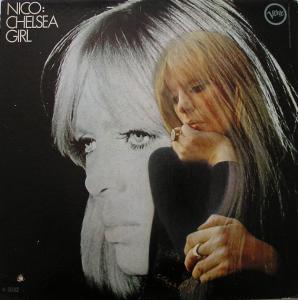Promoting his book Excellent Sheep: The Miseducation of the American Elite and the Way to a Meaningful Life (2014), former English professor William Deresiewicz wrote an Article in the New Republic (the most popular article in the publication’s history) called “Don’t Send Your Kid to the Ivy League”. The book evolved from an article he wrote in The American Scholar some years ago, “The Disadvantages of an Elite Education.”
The original article talks about an experience in the admissions office of an Ivy League university. He recounts the relentless proliferation of extracurricular activities on the applications from prospective students. Rather than see these students as pillars of success, he sees something else:
“Our system of elite education manufactures young people who are smart and talented and driven, yes, but also anxious, timid, and lost, with little intellectual curiosity and a stunted sense of purpose: trapped in a bubble of privilege, heading meekly in the same direction, great at what they’re doing but with no idea why they’re doing it.”
There is no point in summarizing the article in full. But it is worth looking at what it stands for, where it comes from–historically–and what some of the rebuttal and alternative arguments are in this area.
Deresiewicz’s takes a position highly reminiscent of John Dewey‘s attitudes toward education, and is especially troubled by the idea of reducing schooling to mere preparation for a job or to take a place is a social class hierarchy. He also touches on much of what Thorstein Veblen (The Higher Learning in America (1918)) argued a century ago regarding universities gaining prestige through research but sacrificing the education and teaching of students to business objectives of making money from student “customers”.
Not willing to let such a liberal tract go without a response, Steven Pinker, a professor in the sciences, offers a conservative rebuttal in his article “The Trouble With Harvard.” Pinker’s argument ironically succumbs to the very problems that he finds in Deresiewicz.
Pinker argues that people
“should make certain habits of rationality second nature. Educated people should be able to express complex ideas in clear writing and speech. They should appreciate that objective knowledge is a precious commodity, and know how to distinguish vetted fact from superstition, rumor, and unexamined conventional wisdom.”
Well, it is quite clear that Pinker here is a partisan advocate of analytic philosophy that says “science” is “objective” and therefore superior to continental philosophy, for instance. Is it? Or is Pinker just arguing (“If I say it, it’s true.”) that his professional ambit (science) is superior to the liberal arts, or any other academic area? Roland Barthes in Criticism and Truth [Critique et vérité] (1966) ruthlessly attacked the notion of “clear writing and speech” in the context of literary criticism as nothing more than self-serving and circular justifications for the status quo of social status, and ignoring the ways that the perception of “clarity” in discourse was really just a reflection of social status, and not an independent and objective characteristic. It is here that Pinker’s stripes show through. When he talks about the “real world”, he means the values of the current social hierarchy. If a few people swap in and out of that hierarchy, so be it, as long as they don’t transform the basis for that hierarchy in the process (what Deresiewicz’s underlying argument at least hints at).
Pinker takes jabs at “popular writers like Stephen Jay Gould and Malcolm Gladwell, pushing a leftist or heart-above-head egalitarianism” (notably, these are not people that Deresiewicz relies upon in any way in his New Republic article). Pinker continues,
“But all of these hypotheses have been empirically refuted. We have already seen that test scores, as far up the upper tail as you can go, predict a vast range of intellectual, practical, and artistic accomplishments.”
First of all, this retort fails to address a point embedded in Deresiewicz’s argument: what if the elite schools merely reproduce class status? If so, would it not follow that “accomplishments” are segregated by class? Pinker rejects this line of analysis, and in essence changes the subject, tacitly accepting that certain classes can–and should–be able to unilaterally determine what constitutes “accomplishment”.
But further, have these hypotheses been empirically refuted? Pinker offers no evidence or citations. While people like Malcolm Gladwell are hardly paragons of rigorous research, you can see here the ideological battle lines being drawn. Richard Lewontin, who worked with Gould, wrote extensively against biological determinism and the use of scientific credentials to bolster non-scientific arguments based on conservative ideology. No doubt, a weak point of Deresiewicz’s New Republic article was a lack of any sort of comprehensive empirical analysis and an over-reliance on selective anecdotes (I have not read his book to see if that is remedied). But Pinker kids himself if he thinks he has done any better.
Pinker pulls out the old canard of “correlation is not causation”. Causation is just high correlation, and the dividing line is entirely arbitrary, and not independent of the ideology or theory that guides the underlying data collection. This is where Pinker’s analysis becomes “bad social science”. He should really read up on the likes of the late French sociologist Pierre Bourdieu….but he won’t because Bourdieu was not a conservative! And here we have continental philosophy beating out Pinker’s argument, which is revealed to be based on an ideology that naturally seeks to conceal its aims. Pinker is advancing an argument that his type of knowledge, which secures his social position, is superior to other types of knowledge. Why? Well, his article carefully avoids this question, assuming it away. All he offers is the statement,
“I believe (and believe I can persuade you) that the more deeply a society cultivates this knowledge and mindset, the more it will flourish.”
To be persuasive, this would require much more than what Pinker offers in his article! Rather, Pinker offers an analysis that is no more rigorous than anything Deresiewicz wrote in his New Republic article, but is premised on a fundamentally conservative political ideology rather than a leftist one. Pinker fools himself if he thinks that his argument is superior in any way aside from its different ideological premise. If he wanted to launch a better critique, he would need to provide more (or any) data and would need to actual explain why inequality is better than equality (an inherent–and characteristically conservative–premise of many of his arguments). The correlation/causation issue is not independent from ideology, and Bourdieu’s use of geometric data modelling and multiple correspondence analysis, for instance, was a way to objectively relate complex data like this in a more meaningful way that the facile P-value sort of analysis Pinker seems to allude to.
Oh, but what about Pinker’s unsupported assertion that “all of these hypotheses have been empirically refuted”? It would actually seem to support what Deresiewicz argues:
“The research suggests that the best map of this struggle is provided by Pierre Bourdieu, who demonstrates that resistance to standardization within the educational system comes from an inherited elite fighting to preserve invisible modes of evaluation that reproduce the privileged status of a select few.” Protecting Privilege
Or see Nathan D. Martin, “The Privilege of Ease: Social Class and Campus Life at Highly Selective, Private Universities,” Res High Educ (2012) 53:426–452, etc. Maybe these two examples aren’t definitive sources, if fact, they certainly aren’t, but they are more than what Pinker provides.
Pinker concluded that there are good reasons to have selective universities. U.S. society hasn’t always agreed, and so they created the land-grant system (particularly through the second Morrill Act) to chip away at the preeminence of those colleges. This is why afro-American colleges exist at all in the U.S. South.
But let me stop critiquing Pinker’s arguments and look instead at the arguments both writers are making. They share some common ground. Neither of these writers really touch the sort of arguments that someone like Ivan Illich raised in Deschooling Society (1971), arguing that institutionalized education (full stop) carries with it a certain set of problems. This comes as no surprise for Pinker, who is clearly opposed to the sorts of things Illich was suggesting, but it’s more problematic for Deresiewicz. At book length even, Deresiewicz seems to be advocating for mild reforms that don’t seems to present any real solution to the wider problems that Illich wrote about. On this point Pinker has some valid complaints about Deresiewicz’s arguments: are the non-elite schools really any better than the elite ones? Following these arguments through one doesn’t seem to arrive at the position of either Deresiewicz or Pinker.
Pinker also asks:
“Why, I wondered, do these cutthroat institutions hire rowers and baritones who know diddly-squat about business just because they have a transcript with the word “Veritas” on it? Wouldn’t they get more value by hiring the best finance major from Ohio State? I asked some people familiar with this world to explain what seemed to me like a massive market failure.”
Aside from the answers he receives, the very question is interesting. For one, the answers don’t seem to entertain the possibility of class reproduction. Sociologists have studied this extensively, and they often say this class reproduction is a major factor in explaining how the economy functions (Bourdieu, The Social Structures of the Economy). Deresiewicz considers this (“The education system has to act to mitigate the class system, not reproduce it.”). Pinker counters Deresiewicz by ignoring this point entirely and asking a different question. He tries to shift the debate. Pinker asks instead about “market failures”. Asking that question confines the inquiry to the framework of orthodox economics, which ignores class issues–not because such inquiries are rebutted but for purely ideological reasons. Yet again, it seems, we have the predominantly leftist sociological discipline pitted against the largely conservative economic discipline. You could take Deresiewicz and Pinker out of the debate as individuals…they are making most of the usual arguments that the two political ideologies always make.
The “market” view of education is a pernicious one. Thomas Frank interviewed anthropologist David Graeber, and this sort of issue came up:
“So the right wing manipulates the resentment of the bulk of the working class from being able to dedicate their lives to anything purely noble or altruistic. But at the same time—and here’s the real evil genius of right-wing populism—they also manipulate the resentment of that portion of the middle classes trapped in bullshit jobs against the bulk of the working classes, who at least get to do productive work of obvious social benefit. Think about all the popular uproar about school teachers. There’s this endless campaign of vilification against teachers, who they say are overpaid, coddled, and are blamed for everything wrong with our education system. In fact, grade school teachers undergo really grueling conditions for much less money than they’d be paid if they’d gone into almost any other profession requiring the same level of education, and almost all the problems the right-wingers are referring to aren’t created by the teachers or teachers’ unions at all but by school administrators—the ones who are paid much more, and mostly have classic bullshit jobs that seem to multiply endlessly even as the teachers themselves are squeezed and downsized. So why does no one complain about those guys? Actually I saw something telling written by a right-wing activist on some blog—he said, well the funny thing is, when we first started our school reform campaigns, we tried to focus on the administrators. But it didn’t take. Then we shifted to the teachers and suddenly the whole thing exploded. It’s hard to explain that in any other way than to say: a lot of people resent the teachers for having genuine, meaningful jobs. You get to shape young lives. You get to make a real difference for other people. And the logic seems to be: shouldn’t that be enough for them? They want that, and middle-class salaries, and job security, and vacations, and benefits, too? You even see that with auto workers. ‘But you get to make cars! That’s a real job! And you also want $30 an hour?’”
Ole Bjerg wrote an excellent book Making Money (2014) in which he discusses a contemporary economic fantasy of “being in the market”. This same fantasy is applied to education today. Students, or at least prospective students, are asked to “invest” in an education by incurring massive debt, in the hopes that such an investment makes them “marketable” for certain jobs. This places the burden on the student to select a type of educational training for which there will be employer demand over the entire term of the student loan cycle. Tying in with Graeber’s points above, many prospective students face a crisis when they perhaps find the jobs (and associated education) that are lucrative now unsatisfying, and few can predict whether even the lucrative jobs of today will still be lucrative over the many-decades terms of typical student loans (which in the USA are not dischargeable in bankruptcy proceedings). This is usually a matter of “educational status” being a “diversionary explanation of wealth disparity” that is “duly dubbed ‘human capital’ on the logic that each academic step adds to the stream of future earnings.” (Michael Hudson, “Piketty vs. The Classical Economic Reformers”). But if there really is any personal freedom, it is the freedom to make a subjective choice about what fantasy is used to process real world interactions. An insistence that everyone accept a dominant fantasy, like the one Bjerg details, is essentially a deterministic stance that rejects the possibility of personal freedom. These are the old battle lines of the political right and left.
Another critique of current secondary education in the USA is that it is premised on selling a “college experience” rather than on education per se. This view may be difficult to fully separate from the sociological one that people like Deresiewicz advance. After all, it is not as if students really reduce college to a brief and singular experience that they plan to pay for the rest of their lives of drudgery. Rather, they probably do expect something better through the rest of their life to justify the debt, and it might be that this allows them to participate the the habituation to the culture of the elites, perhaps something that predicts achievement/success better than “pure” education.
Yet another critique focuses on the application of neoliberal political and economic ideals to educational settings. This is the sort of analysis offered by Benjamin Ginsberg and others, focusing on the rise of highly-paid, non-academic administrators in university business models. This perspective is highly informative, yet neither Deresiewicz nor Pinker address it in either of their New Republic articles. Noam Chomsky has spoken about this view, which does tie together with some of the other critiques. Indeed, Chomsky notes that “there were basically two [educational] models discussed in the eighteenth and nineteenth centuries.” These two views more or less correlate with those that Deresiewicz and Pinker take, although Pinker would probably deny that he falls into a glorified “teaching to the test” sort of model.
Where does all this leave us? Well, the political left and right still don’t agree. This is hardly a surprise. But these political ideologies also clash within the realm of education and academic credentials. Who prevails is a question of power. Pinker in essence sidesteps the question of power. Deresiewicz obliquely references old debates about it. There is an old Leonard Cohen song with the lines, “There is a war between the ones who say there is a war / and the ones who say there isn’t.” That is precisely what is happening this this debate. Both Deresiewicz and Pinker are trying to marshal resources to their side, making old arguments. At least in their respective New Republic articles, neither systematically brings any new evidence to the table.







